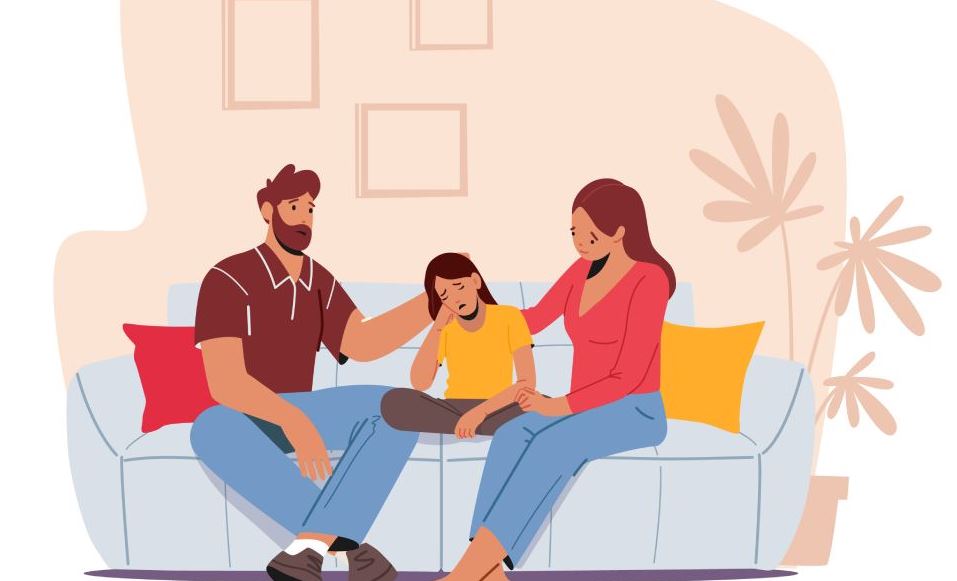Parenting has many styles, and we have shared those in our earlier articles. Today, we will discuss different kinds of parents. In today’s world, there are many different kinds of parents. The word “parent” is often accompanied with a “s, as there are two needed to become a parent in the natural way, but a “parent” can be where there is only one involved, such as in cases of adoption, surrogacy, artificial insemination, divorce, etc. In today’s times, the concept of “my family” taught in kindergarten is passé. There is a need to completely overhaul the concept, as it needs to involve all kinds of parents and families. Now, whether one is a single parent, two parents of the same gender, two separated but sharing responsibilities parents, or a set of man and woman parents, the important thing is the practise of conscientious and consensus parenting.
Conscientious parenting is when parents respond instead of reacting to their children’s needs, behaviours, discussions, sharing, and emotions. Always respond to the child. Do not react with words or emotions that come to mind first. That kind of reaction is detrimental, as the child feels hurt and the parent regrets and feels bad after the reaction. For example, when you raise your voice or hit a child and then later regret it and try to make up, this kind of parent’s behaviour confuses a child. A response is a thoughtful, mindful, and logical reaction. Hence, do not react; respond.
The other important factor is “consensus parenting.” This aspect is the most important in a child’s growing-up years but is often the most neglected. Consensus parenting is not only for parents but for all carers around a child. The adults who live with the child or are responsible for the child in any way should be consistent and have consensus on the child’s upbringing. With upbringing,” I mean the routine, rules, and boundaries that must be followed by all. Harmful environments and detrimental upbringing begin when any one adult in the child’s life opposes the other. For example, if the mother scolds, the father pampers, or the grandmother scolds the mother for being unfair to the child, etc. Now, the child learns manipulation and formulates a pattern of breaking rules, not complying with the appropriate ways of behaviour, and having unreasonable demands. If one adult refuses, the child knows whom to approach to get her or his demands met. The righteous parent then loses respect for the child, and the child distances herself or himself from the particular adult, even when it is the mother or the father.
The overindulging adult need not be happy with this scenario. As the child who loses respect for a prime carer does not respect anyone in the long run and is only happy with the indulging adult until she or he gives in to the child’s unreasonable demands, The day this overindulging adult refuses anything, she or he is the worst person for the child. This is not unnatural. It is obvious, as the child learns deceit and manipulation because of the inconsistency around her or him. Whereas, when there is consensus parenting, the child understands good from bad, permissible from impermissible, and grows up respecting people, rules, and society at large.
This disparity can be seen between parents and teachers as well. Parents must remember that if they badmouth the teacher in front of the child, talk to the teacher rudely, or talk about her in a demeaning manner in the presence of the child, the child will have no respect for the teacher, and then in turn for the school or for education. This is because the first association and bond of the child with her or his academic journey and success is the bond with the primary teacher. Always sort out your differences after taking a personal appointment, not during a parent-teacher meeting or in the presence of the child. If you, as parents, will not respect the teacher, school, and education, how can the child? Think of the consequences, then. The child grows up a rebel in school, a bully, or bunks classes as teachers have no respect for her or him. What kind of future can you envision for this child?
Inconsistency and disparity in parenting lead to a child growing up into an adult who will never respect the law, processes, or boundaries. Imagine what kind of life that will be. Of course, not of a responsible and respectful citizen. thus, requesting all carers and parents to please sit down and agree on the parenting style and upbringing of the child. Happy Parenting!

Smriti Agrawal is an award-winning author, specialized in early childhood parenting.







